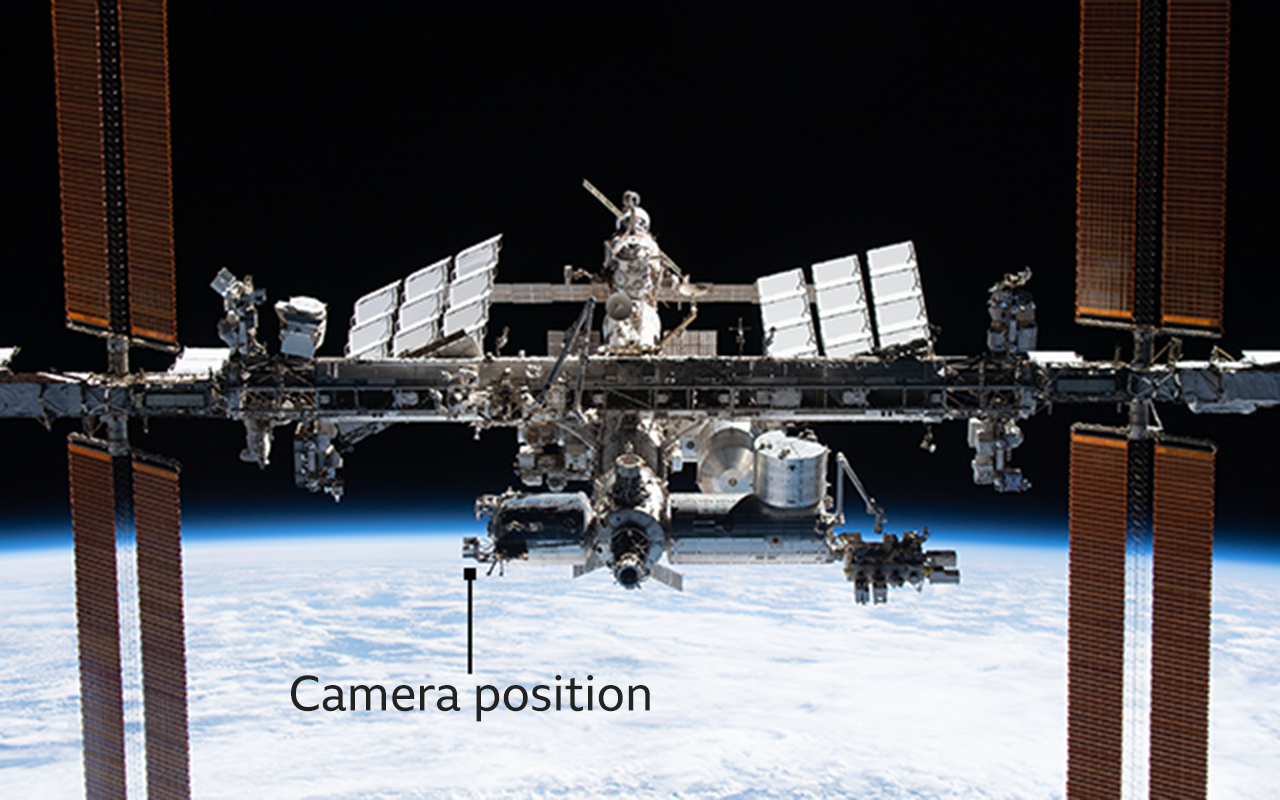UK firm’s 4K video cameras head to space station

This video can not be played
To play this video you need to enable JavaScript in your browser.
Ultra high-definition cameras from a UK start-up will hitch a ride to the International Space Station later.
The 4K system from SEN.COM will be attached to the front of the orbital outpost to capture what are expected to be some stunning views of Earth.
The London company already streams live video from a small satellite it launched in 2022.
Boss Charles Black says he plans to extend the company’s technology to many more locations, including the Moon.
“Our goal is to bring a whole new way of seeing space, Earth and the Moon,” he told BBC News.
“We want to put cameras in lunar orbit, on the lunar surface and on lunar rovers, filming astronauts as humans return to the Moon.
“We want to tell that story.”

The ISS cameras will be carried up on the latest US space agency re-supply mission.
More than 2.5 tonnes of food, clothing, equipment and scientific experiments are due to launch atop a SpaceX rocket from Florida at 16:55 local time (20:55 GMT).
On arrival, SEN’s camera payload will be prepped by the station crew and then put through an airlock to be placed on the Bartolomeo deck – a piece of exterior structure connected to the European Columbus science module.
The big robotic CanadaArm-2 will do the manoeuvres, scheduled for May.
This video can not be played
To play this video you need to enable JavaScript in your browser.
One camera will look straight ahead at the horizon, capturing sunrises and sunsets, as well as the northern and southern lights.
A second camera will point straight down, to focus on what’s happening on Planet Earth. The capacity scene size will be about 180km by 240km (110 miles by 150 miles). It will see features as small as 60m across.
The controlling software should be able to adjust the exposures so that when the station moves into darkness, city lights will be visible.
A third camera will be directed at the forward docking point to record the comings and goings of space capsules – the SpaceX Dragon ship and the soon-to-debut Boeing Starliner.
This video can not be played
To play this video you need to enable JavaScript in your browser.
The plan is to stream 4K video – jumping between these cameras – more or less continuously. The data will come down through the European Space Agency’s relay system, which bounces signals to the ground via high-throughput satellites positioned high above the space station.
You can get a feel for the type of video anticipated from the samples on this page. They were captured by SEN’s ETV-A1 satellite, which has been operating for the past two years at an altitude of 505km. More of these spacecraft are currently being assembled.
Again, it’s a mix of wide and narrow-angle views.
The London company is monetising these products, working, for example, with film and TV companies on documentaries.
The firm is also hoping to engender interest from news organisations who might want to reflect events in a different way, especially if those events have global reach. Last year’s Canadian wildfires would be a good example. Seeing their fire fronts and smoke plumes gives a much clearer sense of just how big an area was burnt.
This video can not be played
To play this video you need to enable JavaScript in your browser.
SEN is by no means the first company to move into the “video from space” market, but Mr Black believes he can find success by packaging the material in the right way.
“Video from space is important and will be big business… because real-time video has story-telling power, and can deliver insights about what’s happening directly to people, in the same way Google does,” he said.
“Google Earth had over a billion downloads to look at static imagery, so a real-time dataset about Earth which tells the story of what’s unfolding on Earth and in space right now, which is fully searchable and uses artificial intelligence and augmented reality to show insights, will be a mass data product for humanity.
“No-one has addressed that market before, and that’s what we’re doing.”


